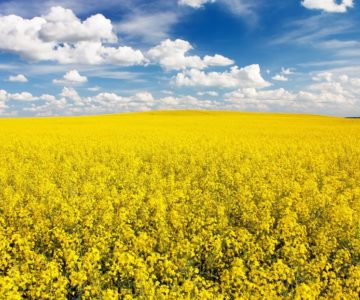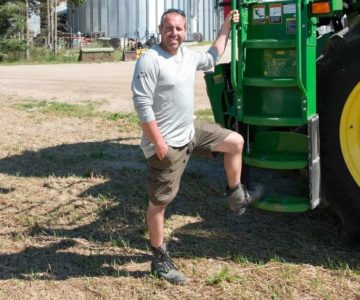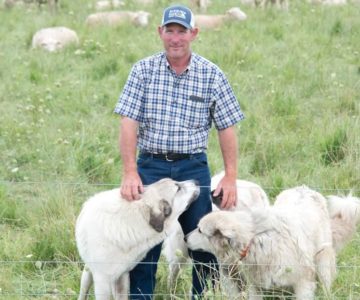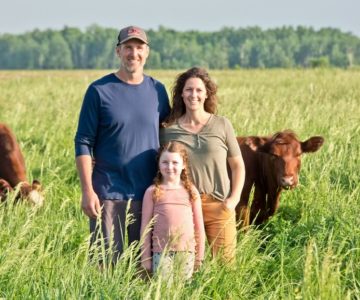The Land That Feeds Us
Large-scale farming in Dufferin still has a fighting chance of remaining a viable industry that both feeds us and helps maintain national food security.
In this issue we twice quote an Ontario Federation of Agriculture statistic that farmland is disappearing in this province at a rate of 175 acres per day. Sadly, these hills are not exempt from the forces behind that alarming statistic.
When I first moved to the freshly minted Town of Caledon back in 1974 (the year its former townships were amalgamated into the new Region of Peel), the character of the town was still definitively agricultural. But even then, speculators were buying up farmland at the south end of the town, eager to capitalize on the massive urban development in neighbouring Brampton and Mississauga.
Twenty years later, when this magazine was launched in 1994, the town’s population had doubled and the traditional farm community was aging out. Although there were still plenty of farmers, they were outnumbered by newcomers, and agriculture did not dominate the character of the community as it once had.
By then I had moved to Dufferin, which like Caledon also had a population of about 40,000, more than half in Orangeville. But now things are evolving differently in the two municipalities. Caledon’s population has doubled again to over 80,000, and is projected to double once more in the next 20 years to 160,000 and then make an exponential jump to 300,000 by 2051. Most of that population influx will occur in the south end, wiping out thousands of acres of prime agricultural land on the Peel Plain, along with most of the town’s remaining large-scale farm operations. Dufferin’s population has likewise increased to about 70,000, but projected growth is much smaller than in Caledon, hitting about 95,000 by 2051, most of it in the existing urban centres of Orangeville and Shelburne.
In other words, large-scale farming in Dufferin still has a fighting chance of remaining a viable industry – that is, of continuing to contribute both to feeding Canadians and to maintaining national food security in an unsettled global market.
But loss of farmland is not the only threat to the sustainability of farming. Another significant one is the increasing distance between us as consumers and the origin of the food we eat. That lack of public awareness allows the vital preservation of farmers and farmland to drop beneath the radar of political policymakers. To help right that balance, in these pages, writer Anthony Jenkins sits down for a candid discussion with three Dufferin farmers to talk about their business – and what they want the public to understand about it. As a companion to that discussion, we’ve resurrected and updated a story by Dorothy Pedersen from our summer 2000 issue. Called “An Exurbanite’s Guide to Field Crops,” it’s a primer for those who want to boost their farming IQ.
Related Stories

An Exurbanite’s Guide to Field Crops
Sep 24, 2021 | | FarmingA drive-by primer on what’s growing in Headwaters.

Meet the Farmers
Sep 24, 2021 | | FarmingBert Tupling, Mike Swidersky and Darryl Burnett criss-cross Dufferin County tending to wheat, barley, corn, potatoes, cattle, sheep and more.

Farmers at the Table
Sep 24, 2021 | | FarmingThree Dufferin farmers sit down talk about what it means to be a modern farmer, the challenges they face and what they wish we knew about them.

Regenerative Agriculture Puts the Soil First
Jun 22, 2021 | | FarmingHow cover crops, crop rotation and using livestock to fertilize fields puts local farmers on the front lines in reducing climate change.







